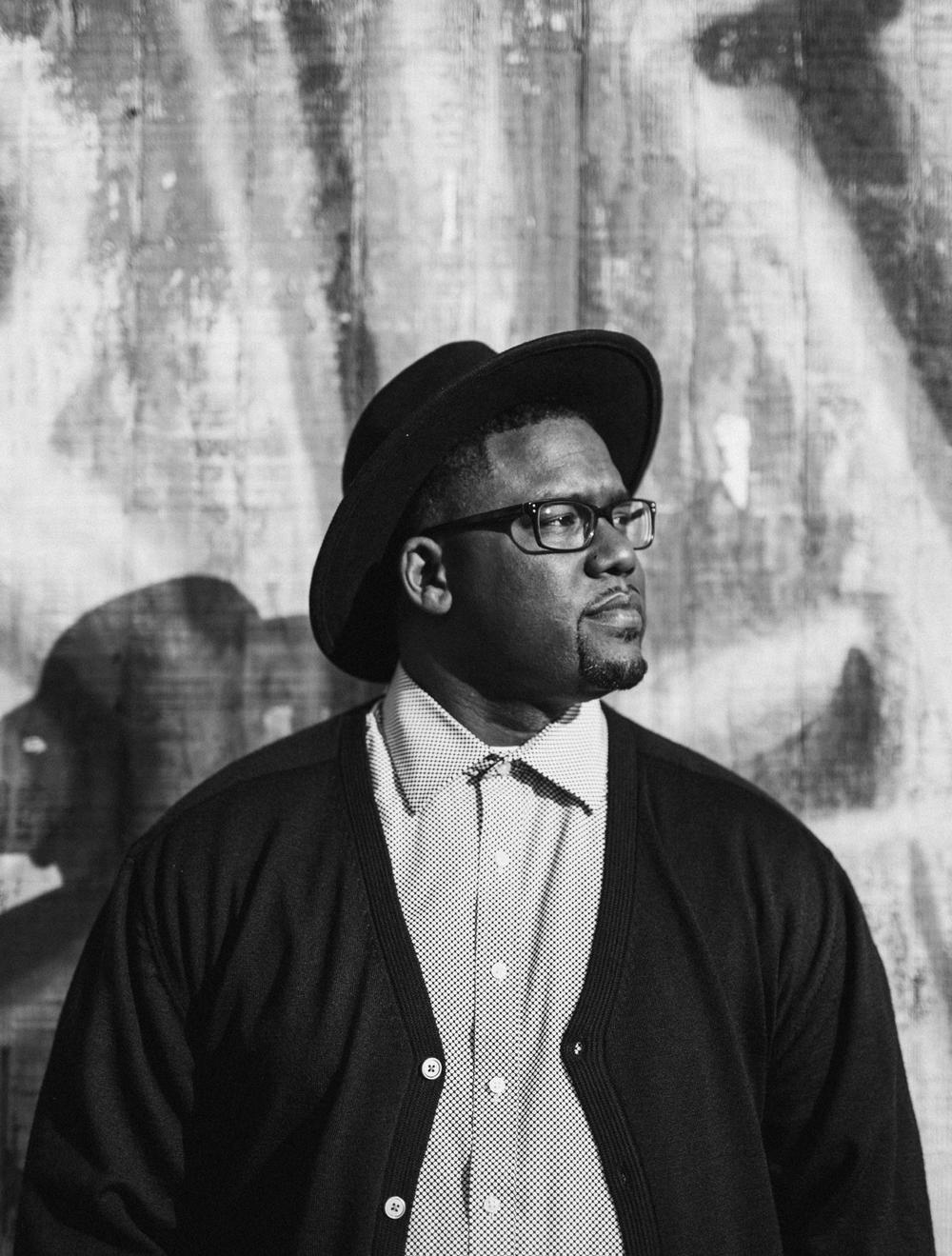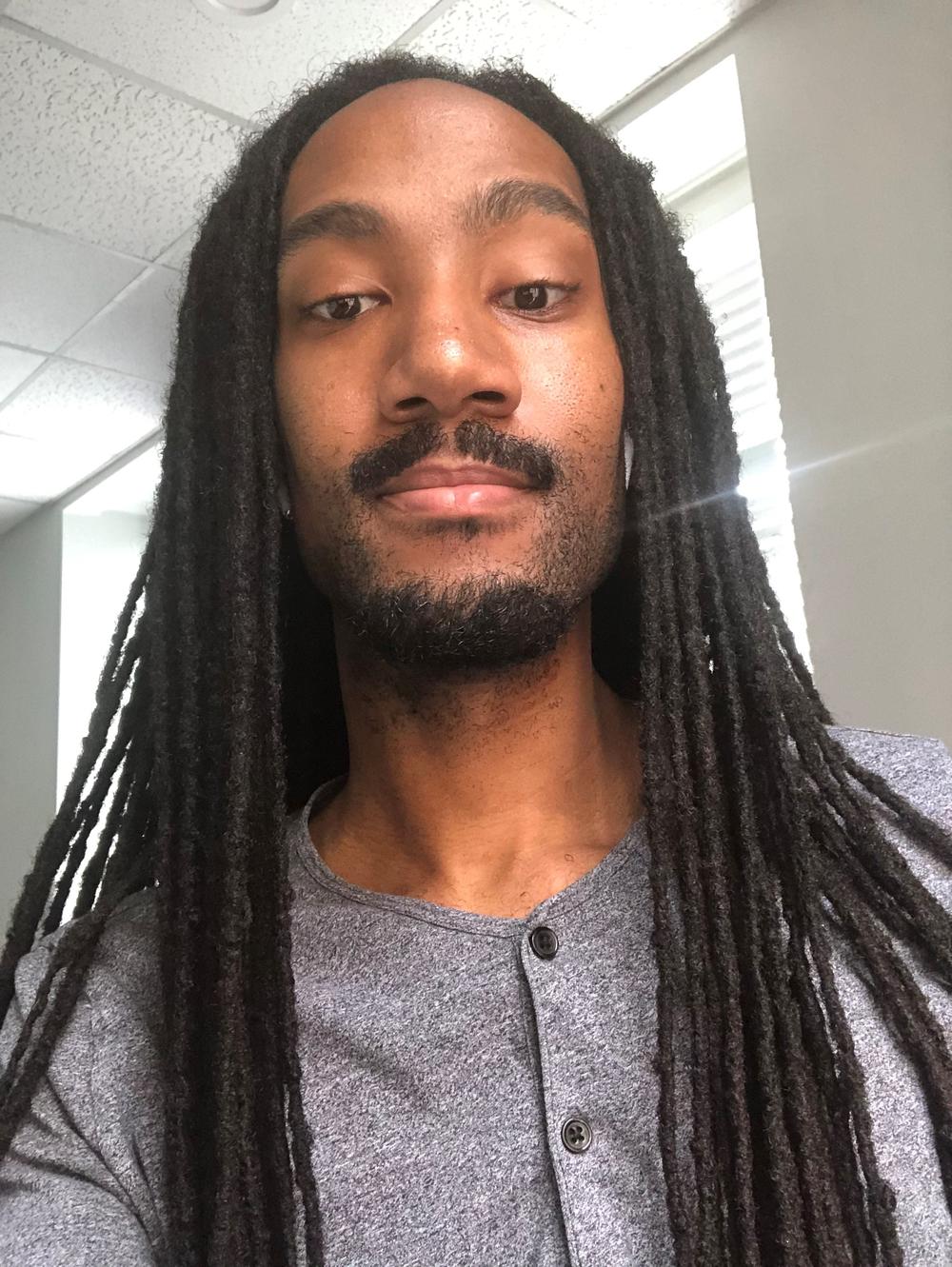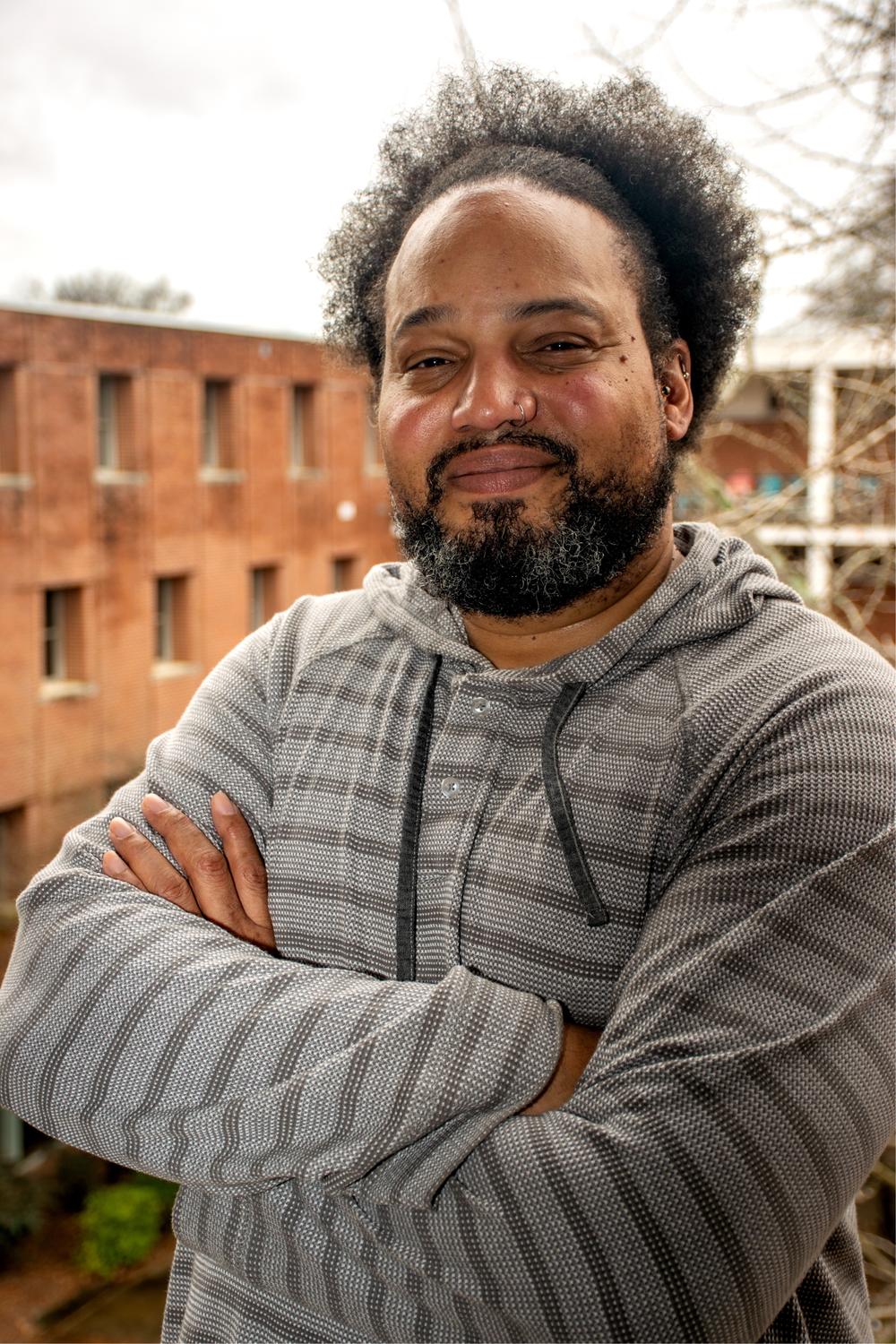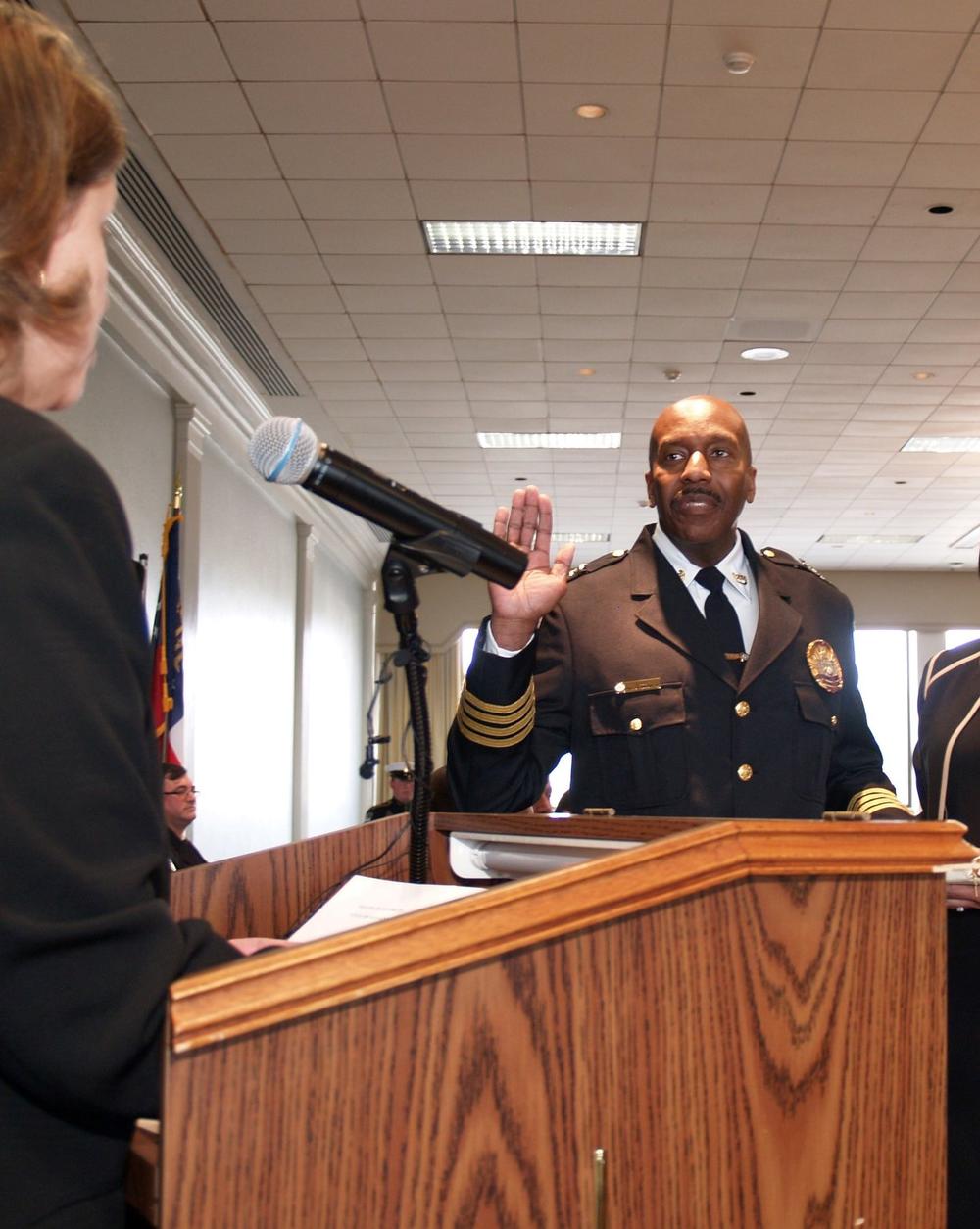Section Branding
Header Content
'The Talk' Is A Rite Of Passage In Black Families. Even When The Parent Is A Police Officer.
Primary Content
For generations, “The Talk” has been a mainstay in African American families. At some point, Black children all get warnings from elders about how to avoid – and survive – police encounters.
It’s a rite that cuts across region, socioeconomic status and profession – even for members of law enforcement.
On Second Thought spoke with four men about how they remember “The Talk,” and how they’ve navigated passing those lessons along to the next generation.
Listen, or read, as we hear stories from:
- Terence Lester, founder and CEO of Love Beyond Walls
- Jerald Nuness, a case manager for a personal injury law firm
- Dr. Andre Brock, associate professor at Georgia Tech
- Roy Minter, chief of police at the Savannah Police Department
Terence Lester is the founder and CEO of Love Beyond Walls, a nonprofit supporting people experiencing homelessness in the Atlanta metropolitan area.
“'The Talk' is a rite of passage for Black children,” he said. “Essentially, we’re taught how to behave in the presence of police officers to mitigate potential harm. It’s a discussion that many Black parents consider a necessary evil, dreading the day when their children kind of go from their innocence to being considered threats.”
Lester received the talk from his parents, aunts and uncles, and even friends’ parents while growing up in Atlanta. In addition to learning how to behave when confronted by the police, Lester says he was taught other behavioral tactics to appear less “threatening” in general.
One such lesson: “Never look angry or sad in public,” he recalled. “Because you could be viewed as a threat.”
Now that Lester has two children of his own, he said it’s important to pass this knowledge on to them to ensure that they are safe. But as a father, he struggles to explain the sense of inequality to his kids.
“This is one of those things where, you know, your heart really hurts,” he shared. “In America, if your skin is kissed by nature’s sun, the reality is that you will be treated differently.”
Lester emphasized the impacts of racial trauma on his own life and how while some people may have the ability to disengage from questions of race and equity, he does not.
“As Black parents are having this talk with their children, I hope non-Black parents are also having talks with their children – to ensure that we have a safer and equitable world,” he said.
Jerald Nuness is a case manager for a personal injury law firm, and grew up in Jonesboro, Georgia. He said he received “The Talk” from both of his parents throughout his childhood.
“The first thing they told me was that I’m going to grow up to be a Black man, and I was already going to have strikes against me because of that,” he recalled. “I didn’t necessarily understand it back then.”
Nuness shared that one of the messages his parents reinforced was to stay calm when pulled over by the police. In his own life, Nuness has found that lesson to be easier said than done.
“I’ve noticed that if I’m being pulled over for any reason, my heart begins to race,” he said. “It’s difficult, but it’s like, I always question — am I going to make it after this? Am I going to be alive?”
Nuness has a 9-year-old nephew. His family has recently started having “The Talk” with him.
“We’re trying our best to not traumatize him, but try to prepare him,” he said.
Nuness said he wishes people would understand that the color of his skin is not a threat.
“Living with that stress, and seeing different things causing trauma — it is a detriment,” he said. “It does hurt us. And it holds us back from a lot of stuff.”
Dr. Andre Brock is an associate professor at Georgia Tech, and was born in Louisiana.
He grew up in cities and towns across the country, and in each one, his mother gave him and his brothers a new version of “The Talk.”
“It was very much a sense of: these aren’t the friendly officers you see on Nickelodeon and the like,” he said. “These are people who are vested in finding a way to get you in trouble.”
Brock recalled receiving messages on how to conduct and carry himself in public, from behavior while shopping to how he should dress and maintain his appearance.
“You need to have a receipt in your hand when you leave the store, and hold it visibly,” he remembered being told. “You should always have your hair cut. You should always have clean clothing on.”
Today, Brock has three children of his own. His oldest son grew up in New York City, and Brock recalls talking with him about how to mitigate the effects of the city’s “stop-and-frisk” program, which disproportionally impacted Black and Brown youth.
“Having to tell him to reduce yourself to the least objectionable agent is a humiliating thing to have to tell your child,” Brock said.
Brock has slightly different talks with his youngest daughter, who is 15.
“I want to talk to her about the ways that she can be misunderstood as a Black woman,” he explained. “It’s a variation on ‘The Talk,’ but it’s still necessary to have.”
However, Brock emphasized that while his experiences as a Black man in the United States have had a profound impact on him, they aren’t the only thing that defines him.
“While I constantly exist under the watchful eye of racism and racist ideology, that is not the only thing that constitutes me,” he said.
Roy Minter is chief of the Savannah Police Department. Minter received “The Talk” as a young man growing up in Detroit. He recalled that growing up, he had little respect for police officers in his community.
“If you would’ve asked me what I wanted to be in high school, police officer was nowhere on that list,” he said. “I had zero respect for the police. I was a kid that used to hide in the bushes and throw rocks at Detroit police cars when they rode by.”
Minter recalls receiving “The Talk” from his father.
“I remember my dad telling me to be careful,” he explained. “He said if you get pulled over, first of all, be courteous. Be respectful. The other thing he said — be clear in your communication. If you’re reaching for your wallet, if you have to lean over and grab something, make sure you clearly communicate that to the officer.”
Minter recalled an instance in Detroit when he was pulled over by two officers for failing to signal, even though he is adamant that he did. Minter said that, given the fact that he was a Black man driving in a predominantly white neighborhood, he thinks the police officers had in fact racially profiled him. Experiences like that one impacted his perception and opinion of police.
However, a high school graduation requirement led to a transformative experience working at a local police precinct, and convinced Minter to pursue a career in law enforcement.
“I realized during that time that I was working at the police station that, if I became a police officer, it would give me the opportunity to go out and be a representative of law enforcement and basically treat people the way I felt they should be treated,” he said.
But as Minter raised two children of his own, even as a police officer himself, he felt it was necessary to give “The Talk” to his son and daughter. His version of “The Talk” echoed many of the lessons his father gave him. Still, the fact that his children are more likely to be racially profiled by the police is a source of concern.
“And that’s part of the reason why I continue to do this job, continue to make a difference out there,” he said. “Me as a police chief, I have a responsibility to make sure, as best I can, we provide the training, direction, and accountability standards for officers in our department.”
Minter said that he “absolutely” supports police reform, and understands the frustration in the community, not just as a member of law enforcement, but also as a Black man.
“I never forget the fact that I work as a police officer, but I live every day as an African American male,” he said. “And I never forget about the fact that George Floyd could have been me. Rayshard Brooks could have been me.”
Get in touch with us.
Twitter: @OSTTalk
Facebook: OnSecondThought
Email: OnSecondThought@gpb.org
Phone: 404-500-9457












